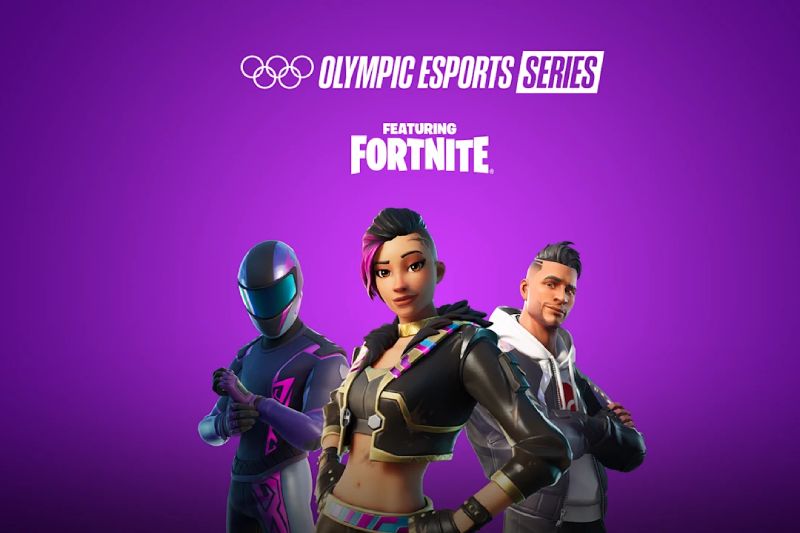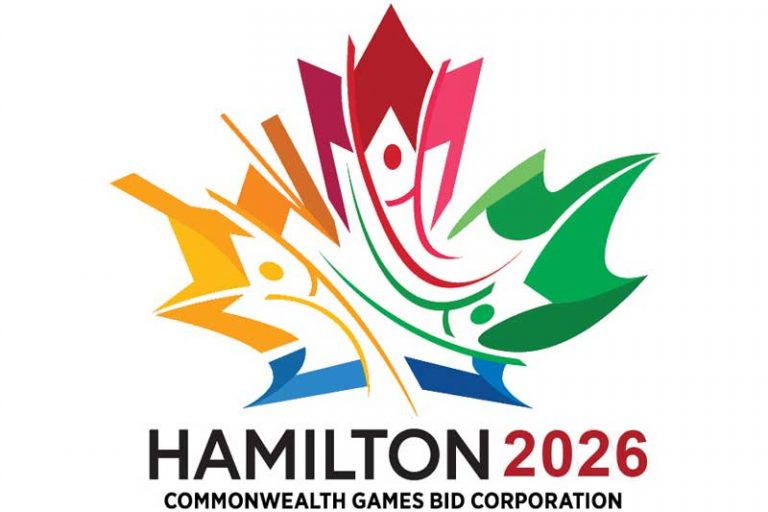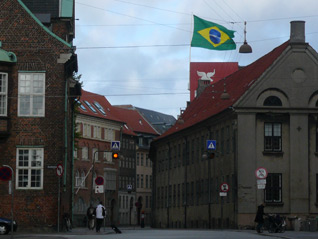In what could be its most aggressive and meaningful diversification since launching the Youth Olympics in 2010, on Thursday the International Olympic Committee (IOC) will launch the inaugural Olympic Esports Series (OES). It may go unnoticed by most mainstream gamers and Olympic fans, but nervous IOC executives will see this as a chance to test the temperature of the exponentially growing popularity of esports and how it may help revive the popularity of the Olympics among youth – or lead to the Games’ eventual demise.

The IOC has officially positioned the event as being “designed to support the development of esports within the Olympic Movement and to engage with the competitive gaming community,” but neither of these goals are likely to be met in the tournament that will take place in Singapore – the same place those first Youth Olympics were launched – from June 22 to 25. There will be 10 official sports and games represented by their digital counterparts: the IOC calls these “simulated sports”.
The IOC reported 131 players from 64 countries will compete in the series with 50 more invited guests demonstrating a set of exhibition esports.
But “simulated sports” are not the same as esports, and that is where there is a significant disconnect. The IOC is trying to adapt esports to fit in with the Olympic Movement, instead of the other way around. Regular readers in this space already know that it took decades for the IOC to understand that the Olympic Games had to adapt to potential host cities in order for the franchise model to continue to exist, so it’s not surprising that the IOC will get esports wrong on its first try. The digital world moves fast, though, and there is little room for error.
There are already wildly popular professional esports leagues and two world governing bodies including the original International Esports Federation (IESF) and the newer Global Esports Federation (GEF) that formed in 2019, and they have established a repertoire of game titles that are popular with pro gamers, amateur enthusiasts and mainstream players. Esports were featured as a demonstration event at the 2018 Asian Games and the Commonwealth Esports Championships were held alongside the Birmingham 2022 Commonwealth Games, both staging popular titles including battle game Dota 2.
The IOC has instead gone in a different direction with the OES. Many competitive gamers have questioned the event and the selection of titles available for the competitions, and without that engagement – development within the Olympic Movement will be impossible.
The desperation to fix this became evident last month when just weeks after the original games list was announced with lukewarm response, the IOC heralded the inclusion of Epic Games’ Fortnite. The Battle Royale version of the game was launched in 2017 and immediately skyrocketed in popularity to ‘household name’ status. Still a staple in most homes with young people and gaming consoles, Fortnite has about 70 million monthly active players according to the publisher. Full disclosure: though not the typical demographic, I’m one of those players.
For context around the opportunity: The first Fortnite World Cup held in 2019 sold out New York’s Arthur Ashe tennis stadium (capacity over 23,000) – also home to the U.S. Open Grand Slam championship – and was shared with 2.3 million livestream viewers. Several versions of the traditional Battle Royale game were featured and a USD $100 million prize pool was awarded to winners, including $3 million for solos champion Kyle Giersdorf (known as “Bugha”) who outlasted over 40 million international entrants. Subsequently, the COVID-19 pandemic reshaped the event into an online Championship Series, but in October an in person tournament will take place at the Royal Arena in Copenhagen, Denmark with several million dollars up for grabs.
Many players I talked to met the initial news of Fortnite and the Olympics with excitement, until they learned we’re not getting the actual game.
So what do we get at the Olympic Esports Series? Fortnite sport shooting.
This is an element of the game that doesn’t currently exist in Fortnite so a special map (think arena) has been developed in what Epic Games calls ‘creative mode’. The IOC describes it as “a digitally hand crafted International Shooting Sport Federation Island.” Top performers from the most recent Fortnite Champion Series will be invited to participate in this new event that will seem foreign to them – and to Fortnite fans. Upon learning this, fans quickly lost interest.
You can’t blame the IOC for trying to tap into the market that Fortnite has available, but it just won’t work.
Why won’t the IOC include Battle Royale, or some of the other variants offered by Fortnite? It’s complicated.
First look! 👀
This is the map for the finals of shooting featuring Fortnite in the #OlympicEsportsSeries ⭐@issf_official | @FortniteGame
— The Olympic Games (@Olympics) June 20, 2023
The family-friendly battle royale style game features characters from Disney’s Star Wars and Marvel universes among other popular genres, and allows you to eliminate opponents using archery-type weapons, snowball canons and egg and pumpkin launchers, and most recently, killer wasps.
You can also choose to essentially mass kill many of the 100 players in the match with AR style weapons, sniper rifles, combat shotguns and grenades. The goal is to outlast all of your opponents using a wide range of skills including teamwork and building, with ‘target shooting’ being only one element leading to success.
I’m not judging the violence in the game. Again, I’m a fan. Eliminations by any weapon are bloodless, and players are ‘beamed’ from the arena after losing all of their ‘health’. Compared with some rival titles such as Call of Duty and Counter Strike: Global Offensive (or CS:GO to those who play) which are more graphically violent, Fortnite’s combat games are designed to test a player’s strategy, tactics and aim in a more family friendly context.
Still, the IOC wants nothing to do with any kind of gun violence and will instead only allow the very watered-down subset of the Fortnite game into the esports series. Indeed, the IOC’s mantra is basically “unite the world in peaceful competition.”
IOC President Thomas Bach said May 7 “when it comes to the e-games, there is a very clear red line, however. Every game which is contradictory to the Olympic Values, like killer games or games which are discriminatory, is an absolute taboo to the Olympic movement.”
On the other hand, Epic Games has been been quick to leverage Olympic fame for massive profits. Fortnite regularly offers in-game cosmetic items for sale, including skins depicting Olympic Champions such as snowboarder Chloe Kim and basketball legend Lebron James, both from the United States, and Olympians including Japanese Tennis star Naomi Osaka and Brazilian footballer Neymar. This week players were treated with a special collaboration event that featured branding and in-game cosmetics from Nike, the same shoe brand that signed a huge sponsorship deal with the Los Angeles 2028 Olympic Games.
While watching a cartoonish animation of Osaka gunning down James with a submachine gun may be visually fun for a gamer, I can imagine it being appalling to countless others. That’s the “very clear red line” for Bach.
It seems Fortnite, in whatever bland, sanitized version that shows up, is just the proverbial lipstick on a pig for the OES as the IOC struggles to find the right fit for esports and the Olympics.
Along with Fortnite, the OES will feature nine other digital sports including archery, baseball, chess, cycling, dance, motorsport, sailing, taekwondo and tennis. This is where politics, the other less popular Olympic Value, comes into play. Neither existing esports federation is officially Olympic recognized, and the IOC doesn’t plan to do so anytime soon.
It would be risky for the IOC to go outside its existing hierarchy of international sport federations where there is a critical financial codependence and tricky governance etiquette, so it has left it up to those federations to propose digital titles that are relevant to their real-world disciplines. While you may not have ever seen chess or motorsports at the Olympics, they are Olympic recognized sports federations and eligible to propose games for the OES. Both titles – Chess.com and Gran Turismo (for motorsport) – are probably the most popular to appear in Singapore this week.
The other titles such as Tic Tac Bow for archery, eBaseball: Power Pros and Tennis Clash just don’t measure up. Other potentially fun titles – but unlikely to have ever sold out arenas – include hybrid sports Zwift for cycling and Just Dance for dance sport as well as Virtual Regatta for sailing and Virtual Taekwondo.
Fortnite was proposed by the International Sport Shooting Federation (ISSF). When I reached out to ISSF and Epic Games while preparing this column, neither bothered to respond.
IOC Sports Director Kit McConnell talked up the potential of the chosen titles when I asked him about the program at a press conference following the IOC Executive Board meeting Tuesday. He described the 500,000 unique online participants in the qualification rounds held earlier this year across six events. They drove more than 3 million laps in Grand Turismo, played 450,000 games of eBaseball, volleyed for 3 million minutes in Tennis Clash – and 27,000 sailed in Virtual Regatta Offshore.
According to IESF there were 645 million esports viewers in 2022, but the majority of those fans typically tune in for popular games such as CS:GO and Valorant, or attend live heart stopping league action for Overwatch, League of Legends or Call of Duty featuring my hometown team Toronto Ultra. Those games cannot appear in the Olympic esports series because they are not sport simulations and have no connection with any sports federation.
So what is happening here? The IOC is trying to preserve the future of the Olympic Games as young people are increasingly looking elsewhere for recreation, entertainment and inspiration.
The launch of the Youth Olympics was a promising first step, creating a space where new sports with youth appeal could be tested, and athletes could be engaged and challenged at a younger age so they could cultivate Olympic values into adulthood. Results have helped inspire positive changes in the regular editions of the Games. But esports are highly accessible, engaging and prevalent in pop culture, and the appeal is growing exponentially without the Olympics.
The problem is Olympic messaging and esports are counterintuitive – and they just don’t mix.
But there’s a plan B.
The IOC and OES organizers seem to have signaled that they are aware things may not turn out as hoped. In addition to the main program, there is an exhibition series including more widely played titles including commercial favorites Rocket League (also by Epic games), NBA2K23 and newly released Street Fighter 6 along with Virtual Table Tennis and Arena Games Triathlon. With fan experience being an important element at the event, some of these popular titles could boost attendance and feedback.
More importantly, the IOC can make a side-by-side comparison between the heavily regulated titles on the main program and the more casual options on the exhibition list.
McConnel told me “on the exhibition side we have a little bit more flexibility and that is why we have included a couple of those games like Street Fighter and Rocket League for example.
“We’ve put those on the stage in Singapore to showcase them with some of the really top level players from around the world, but they are part of the exhibition and not the competition.”
And confirming what gets a title on the main program, he said “the competition carries an Olympic brand with it, they are winners of an Olympic prize at the end of the competition so it is really important that it is done with and through an International Federation and partnership with the publisher and we draw a distinction in those two regards.”
The exhibition list exists on the other side of an imaginary wall so that those titles can be distanced from the Olympic brand if necessary – or embraced and brought across to the main program if that becomes a benefit for the IOC.
This inaugural Esports Series is essentially one grand experiment to see if the Olympics and esports can coexist on the same platform. But the Olympics has always been about showcasing the best of the best, and that is certainly not the case in this event or the IOC’s approach to esports.
Perhaps solutions can be found at the Esports Forum to be held alongside OES in Singapore on Thursday. Stakeholders will discuss key topics including technology and development; diversity, equality and inclusion; healthy and clean esports and player welfare. It’s unlikely, however, that a few hours of discussion will solve the IOC’s problem.
Gamers want to play esports, not just digital simulations of physical sports. Until the IOC can accept esports as its own sport category, with its own sport federation, this entire exercise seems pointless. With regional events such as the Asian Games and Commonwealth Games already starting to integrate esports as they are popularly played, it’s only a matter of time before the IOC will need to follow suit, or get out of the esports game.
Unless the IOC can create a new athlete and fan base interested in their brand of esports, the OES – as is said about eliminated players in battle royal games – will be sent back to the lobby.


